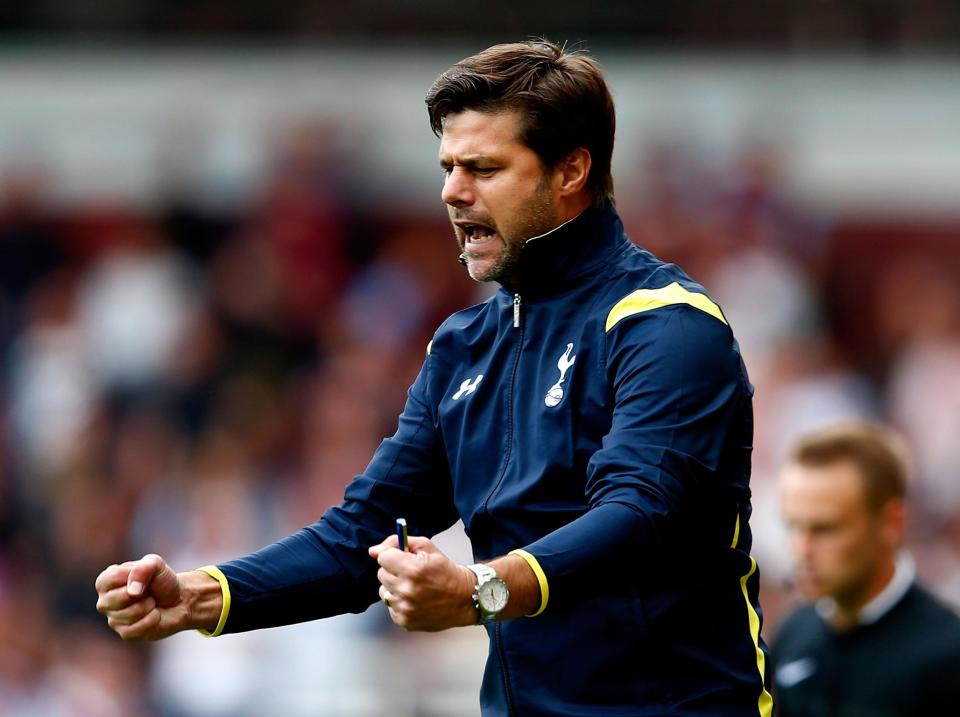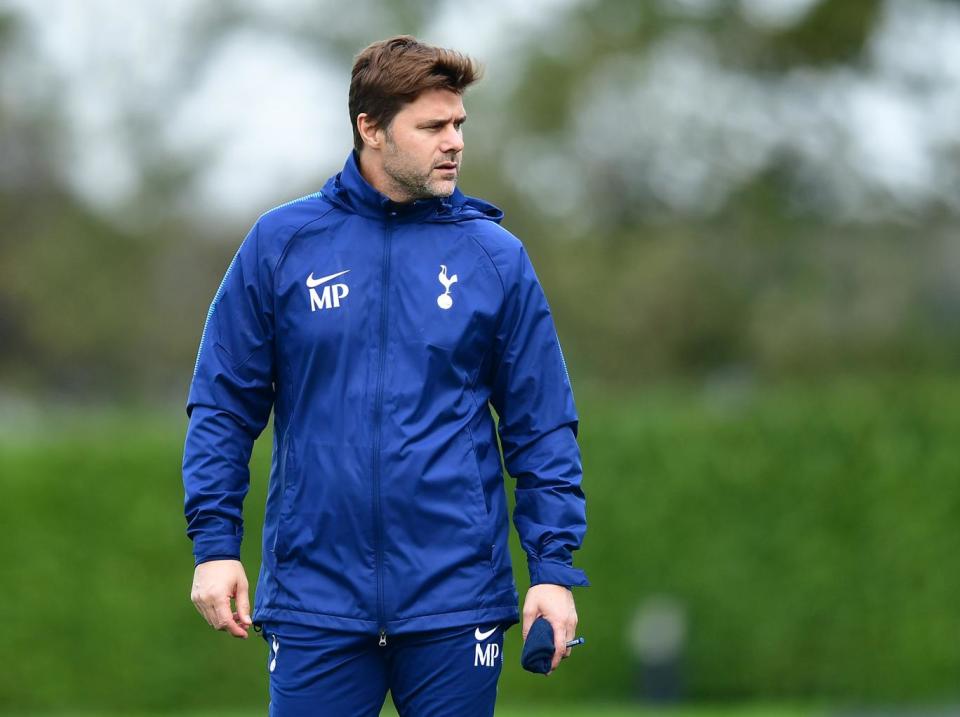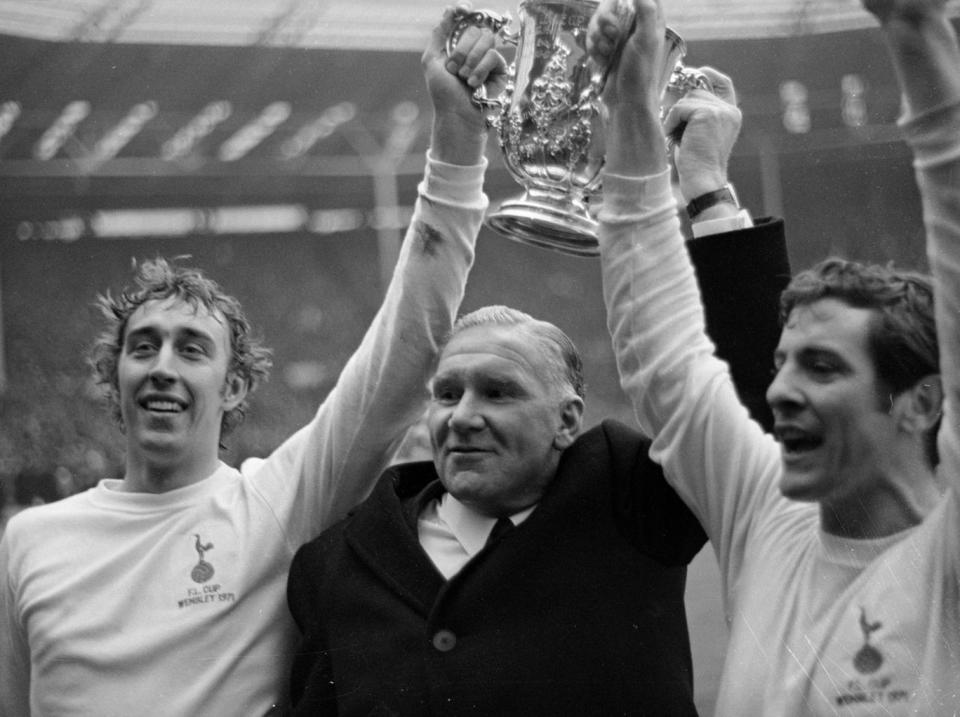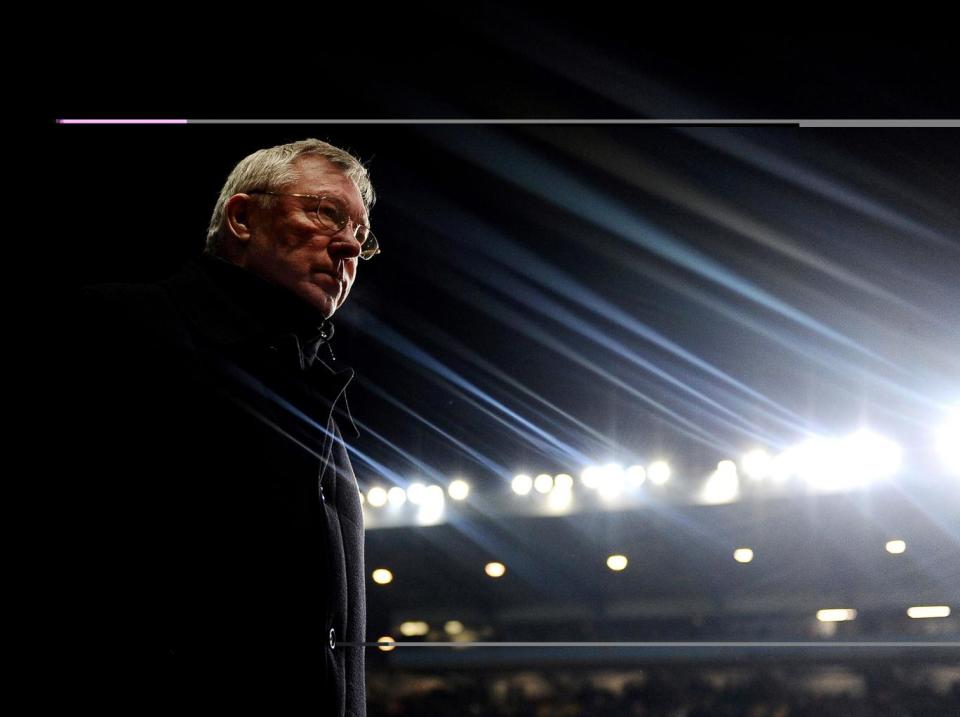New book reveals Mauricio Pochettino to be an idiosyncratic obsessive eager to lead Tottenham to success

For a book that is ostensibly a diary kept throughout Tottenham’s landmark 2016/17 campaign, Brave New World: Inside Pochettino’s Spurs (Weidenfeld and Nicolson) doesn’t half cover a lot of ground.
Beginning with Mauricio Pochettino recounting his playing career in Argentina and ending in last season's near miss, and taking in everything from life-threatening white water rafting trips with chairman Daniel Levy to an infatuation with Claire Underwood from Netflix’s House of Cards, the book offers a fascinating behind-the-scenes look into a team that has come so close to winning the Premier League title, only to twice fall at the final hurdle.
The book is presented in the form of a monthly diary kept throughout last season’s campaign, written in conjunction with the Spanish football journalist Guillem Balague, who spent much of last season interviewing at regular intervals both Pochettino and the people around him.
It is a bold stylistic choice and one that pays off: the Pochettino that emerges from the first-person narrative is an idiosyncratic obsessive, determined to lead Tottenham to success at any cost. And yes, that includes specifying the exact laundry detergent used to wash the first-team’s kit ahead of matches.
Perhaps most illuminating is just how emotional Pochettino reveals himself to be. On the touchline, Spurs supporters are used to the Argentinian conducting himself in a relatively restrained manner on the touchline — certainly compared to some of his peers — with over-exuberant goal celebrations and flare-ups with rival managers relatively rare.
But in a Brave New World, Pochettino is never afraid to display his emotions, as he struggles at various points to contain his frustration or his fury. “I punched a television and almost broke it,” he recollects of Tottenham’s Champions League home defeat to Monaco, for example. He also bursts into floods of tears on repeated occasions, including when he first made the decision to leave Southampton for Spurs. He admits to still regularly wondering whether that was a wise decision or not: a trophy would undoubtedly help to allay those fears.

Of course, Spurs supporters are an equally neurotic bunch and excitement at the book’s publication has been tempered by the fear that rivals could prosper from this rare glimpse into the inner workings of the club. But if anybody is gaining a tactical advantage from the book — it’s Pochettino.
Standout soundbites
Hugo Lloris: “I am very committed to the club but even more to the manager. If he leaves, it will put everything into question, everything. To be happy at Tottenham I need him.”
Danny Rose: “People ask me when I do interviews who is my best friend at the club and automatically I think of players, but when I sit down and think about it, I would say the best friend I have at the club is my manager.”
Daniel Levy: “He [Pochettino] has never given me any indication he wants to leave. He loves the project and once sent me a picture of Bill Nicholson holding the fronts of the gates of the stadium. I replied, ‘One day it is going to be you,’ because that really is what I aspire to. I would love nothing more for Maurico to be our manager in ten to 15 years’ time.”
Adam Lallana: “I would love to work with him again. In the meantime I am enjoying his success and I’m sure he is enjoying mine as well. I’d be lying to say I don’t support his teams: I wanted Tottenham to win the league.”
Luke Shaw: “He used to call me his son. That is how good our relationship was. I have had lots of ups and downs, but when I was with Pochettino it was only ever up, up, up.”
As expected, a significant number of the diary entries find Pochettino studiously explaining why he has decided to play a 3-5-2 over a 4-2-3-1 for a particular match, as he juggles the form and fitness of his players. But the Argentinian is just as astute a tactician off the field as he is on it, and particular players are repeatedly singled out for praise or criticism.
Eric Dier — whose late error gifted Manchester United all three points in Saturday’s match between the two clubs — is one of those to appear prominently. Pochettino writes of his frustration that Dier seems to consider himself as a midfielder rather than a defender, as well as blaming the England international’s poor form at the start of the 2016/17 campaign on interest from Jose Mourinho.
“I found out that United have made an approach and the player is being destabilised,” Pochettino writes. “His people have been putting pressure on him, although United are not promising anything.”
The French winger Georges-Kévin N’Koudou, who has failed to make much of an impression since signing from Olympique de Marseille in 2016, is another to come across negatively. Not only does Pochettino berate the 22-year-old for arriving to training in a luxury sports car while struggling on the pitch, but he also openly wonders whether N’Koudou will ever have the quality to become an automatic starter for his new team. “Making up the numbers doesn’t cut it,” he warns.

These training ground titbits, carefully and deliberately woven into Pochettino’s account of the 2016/17 campaign, are not all negative, of course. Players of a more tender disposition including the young Harry Winks and — surprisingly — the 6 ft 2 in midfield hard man Victor Wanyama are repeatedly praised and reassured of their place at Tottenham.
Nor are they all restricted to players currently plying their trade at White Hart Lane, and one of the most illuminating is a slightly incongruous paragraph criticising Ross Barkley for celebrating before having put the ball in the net against Bournemouth last February. “You must never disrespect your opponents,” Pochettino writes. “You should want to win, destroy them, but there are lines that should never be crossed.” For a man so concerned with the ‘character’ of his team, it could well be an admission that Spurs had no intentions of signing Barkley this summer after all. Or is it sour grapes on Pochettino’s behalf?
This all arguably represents a new strategy from Pochettino. It is not uncommon for journalists to leave his pre-match press conferences grumbling at the continued absence of a ‘line’ — an eye-catching soundbite that can be dressed up as a dramatic headline for the weekend papers. And — his recent Pep Guardiola outburst excluded — Pochettino has long been careful not to criticise or even comment on other managers, hiding behind the translation skills of his trusty assistant Jesus Perez whenever things get a little bit difficult.

However in writing this book, and singling his players and others out for praise or criticism, Pochettino is signalling a greater willingness to engage in the dark arts of football management. Perhaps he has been inspired by the old master of mind games, Sir Alex Ferguson, who was not averse to publishing the odd behind-the-scenes book either. “I will always remember each and every detail from our hours of conversation. It was a dream come true,” the Spurs manager crows of a meeting between the two at the beginning of May.
It is also fascinating to see how Pochettino’s accounts of various players tally with the public’s existing perceptions — particularly when it comes to England internationals. The rate of Kieran Trippier’s recent improvement clearly surprised Pochettino. While Danny Rose — who has admitted in previous interviews to being nicknamed ‘The Manager’s Son’ on account of his relationship with the man in charge — admits to having doubts over his role at the club owing to rumours of Luke Shaw’s impending arrival, only to be reassured over his place in the first-team.
Meanwhile Harry Kane, long known to be one of the club’s most dedicated professionals, is revealed to be even more committed to self-improvement than anticipated.
“He was a frustrated guy when I arrived, out of form with the habits of a player in his thirties,” Pochettino recounts. “He is now completely focused on his football. He has a house in Essex but spends the week at another one that he owns closer to the training ground. He is the first person to arrive and the last person to leave.”
If there is to be one slight criticism it is that Balague’s over reliance on various English football cliches — ‘bagging a brace’ being one of the more common and jarring examples — occasionally shatters the illusion that this is Pochettino’s first-person narrative. But this is a quibble. Brave New World: Inside Pochettino’s Spurs is a fascinating read offering unparalleled insight into one of the most exciting managers currently working in football.
Brave New World: Inside Pochettino's Spurs, by Guillem Balague, is published by Weidenfeld and Nicolson and is out now.

